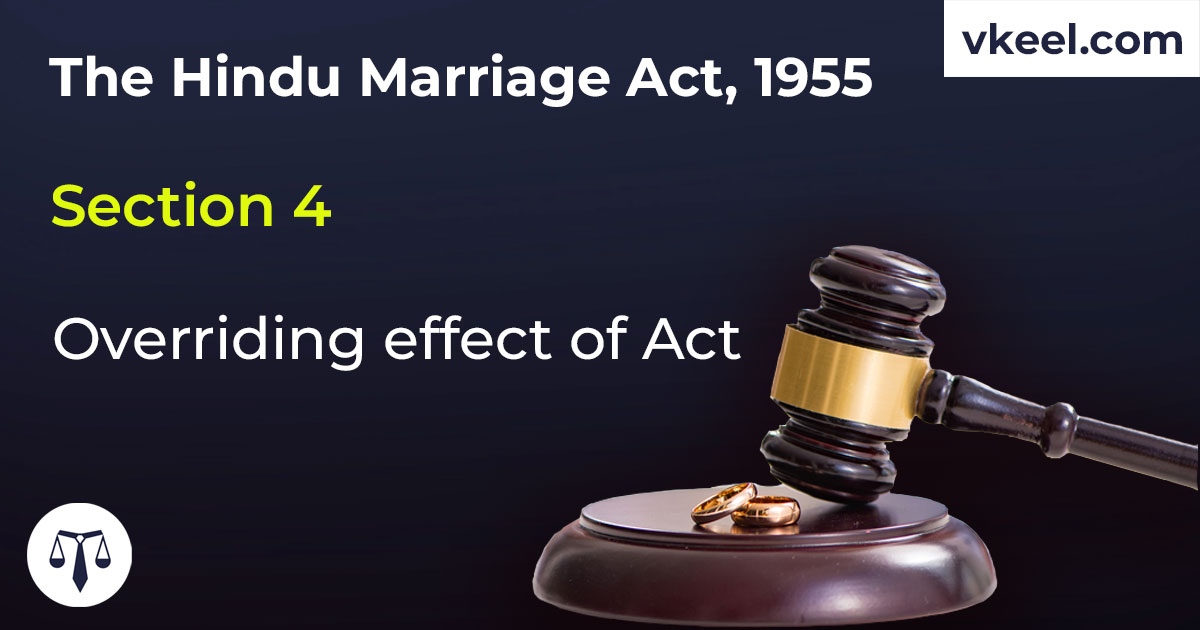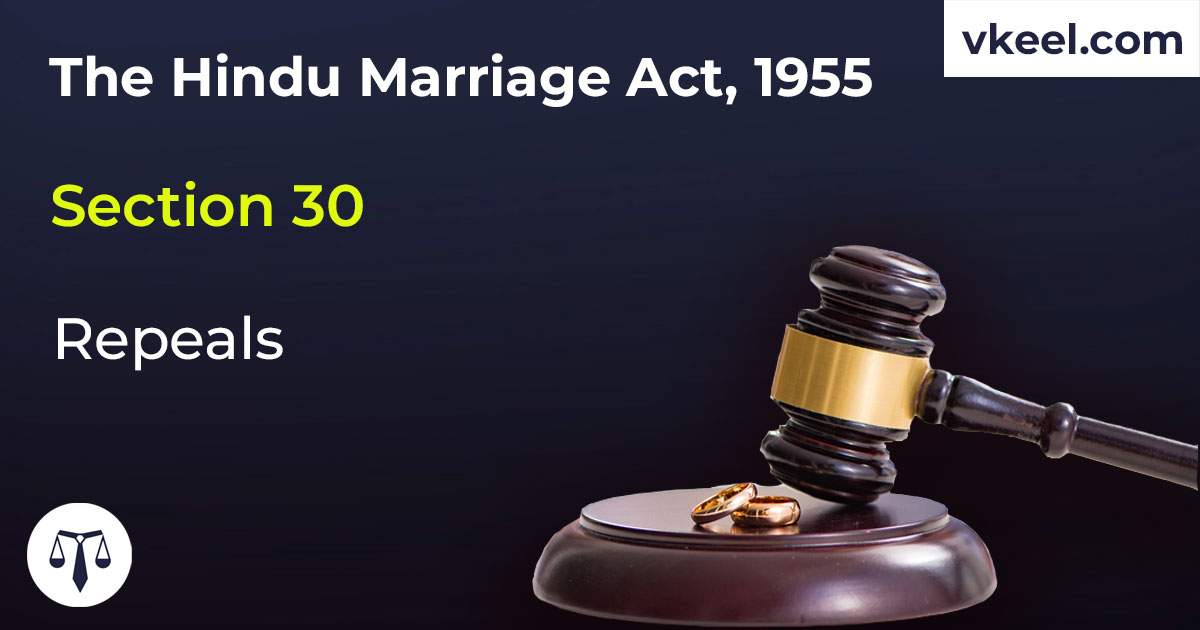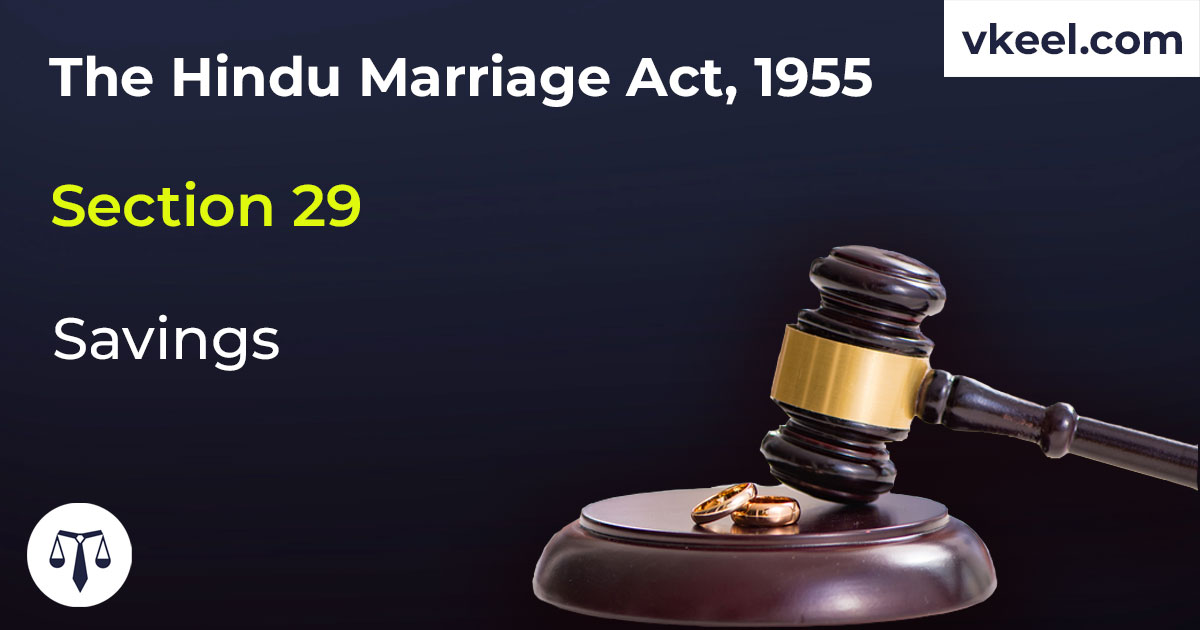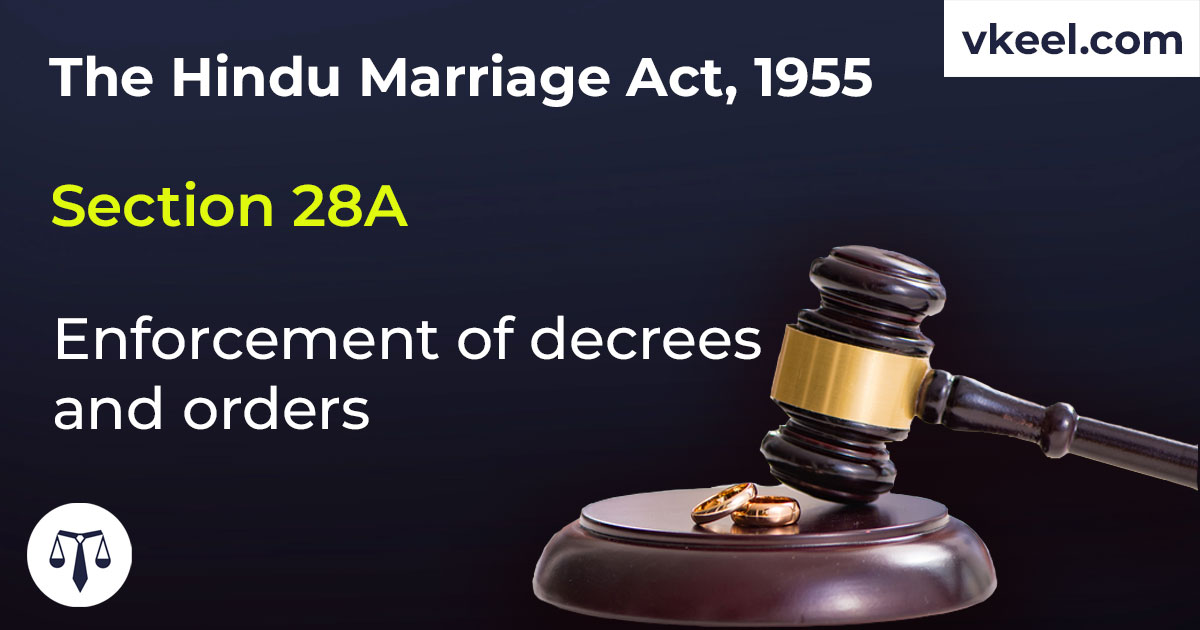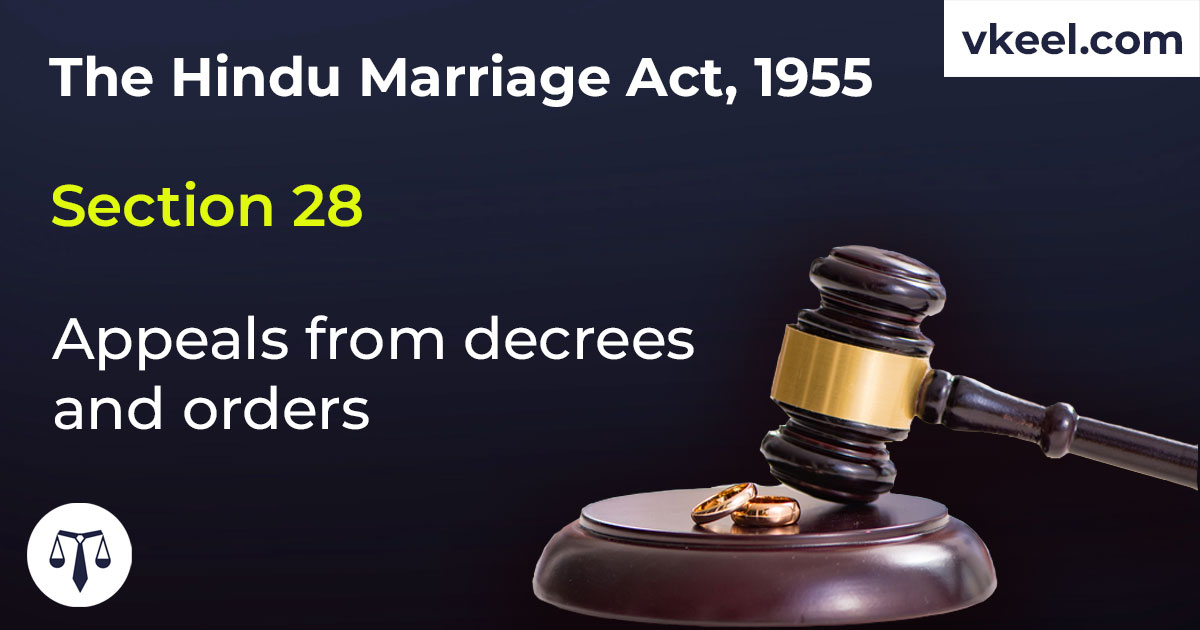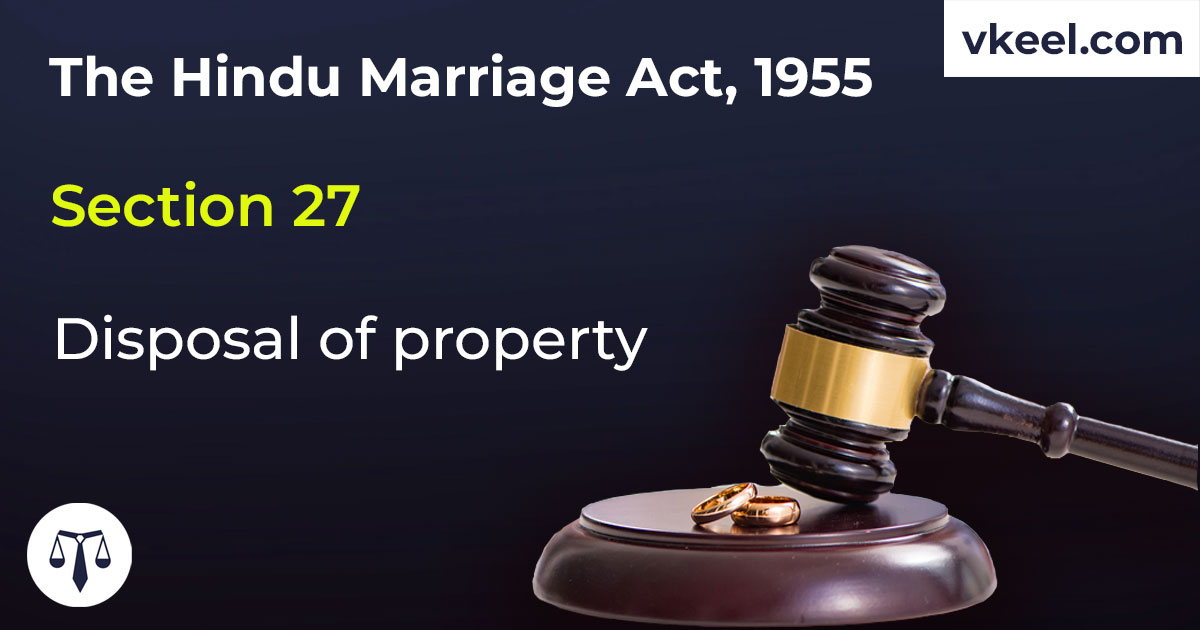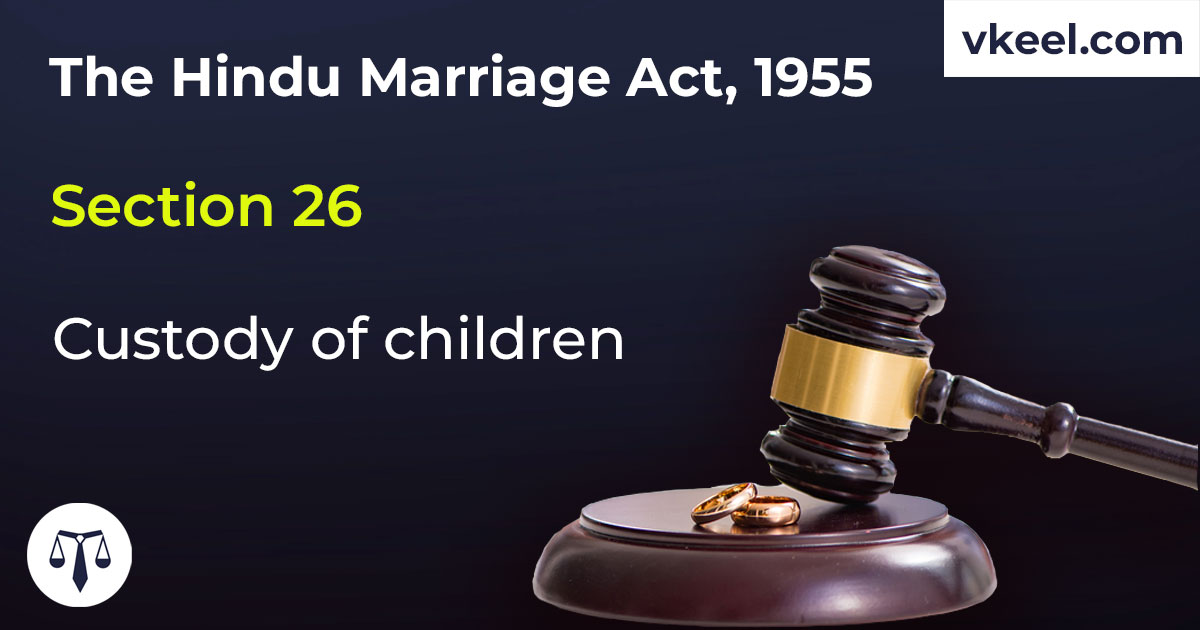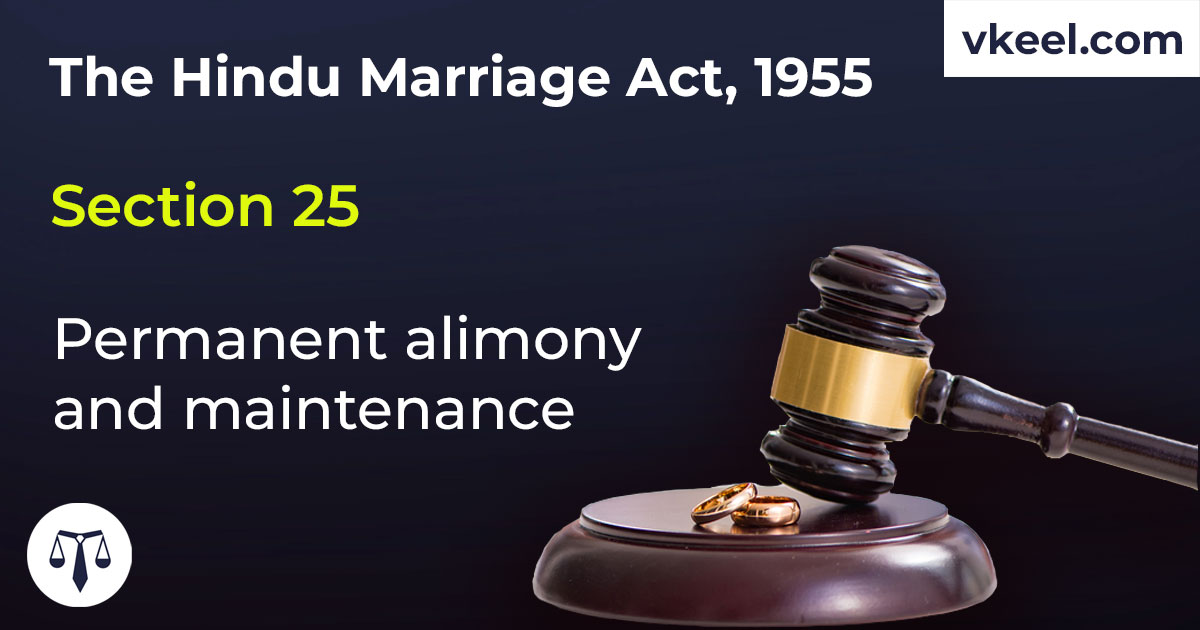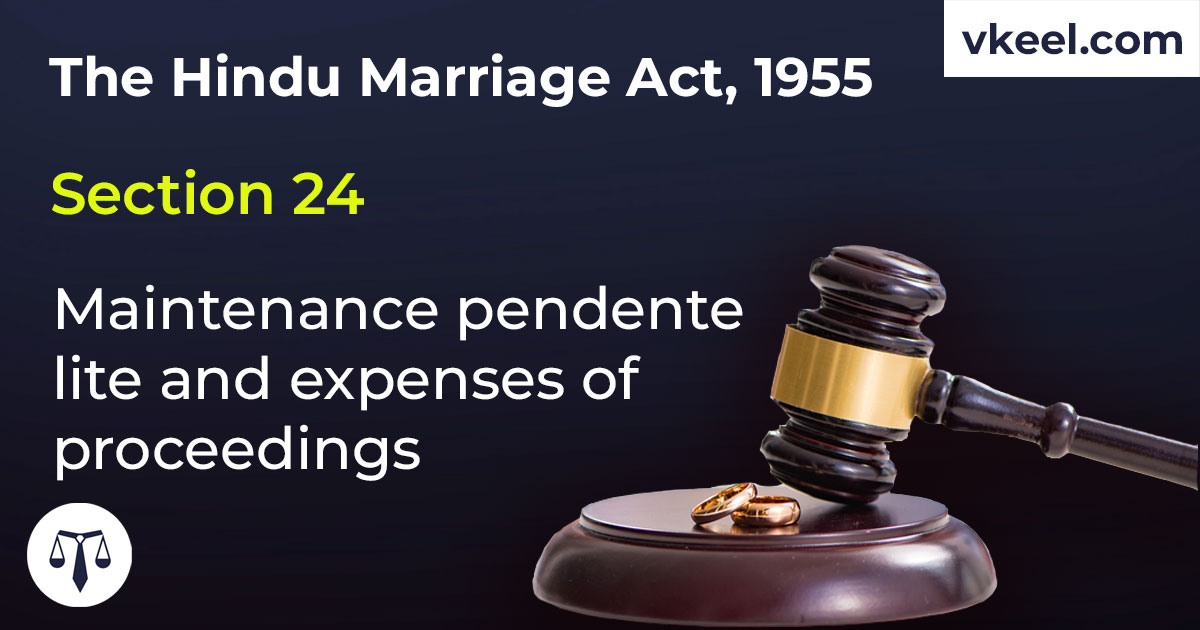Section 4 Hindu Marriage Act 1955 – Overriding effect of Act
By Vkeel Team
Table of Contents
Description
“Section 4 Hindu Marriage Act 1955”
Save as otherwise expressly provided in this Act,—
(a) any text rule or interpretation of Hindu law or any custom or usage as part of that law in force immediately before the commencement of this Act shall cease to have effect with respect to any matter for which provision is made in this Act;
(b) any other law in force immediately before the commencement of this Act shall cease to have effect in so far as it is inconsistent with any of the provisions contained in this Act.
Provisions of Section 4 Hindu Marriage Act 1955
Section 4 Hindu Marriage Act 1955 is a legal provision that outlines the conditions for a valid Hindu marriage. This section states that a Hindu marriage is valid only if the following conditions are met:
- Neither party has a living spouse at the time of the marriage.
- The parties are not within the degrees of prohibited relationship as specified in the Act.
- The parties are at least 21 years of age, or if they are below 21 years of age, they have obtained the consent of their respective guardians.
- The parties are of sound mind and are capable of giving valid consent to the marriage.
- The parties are not related to each other in any way that would render the marriage void under the Act.
- The parties have given their free and valid consent to the marriage.
- The marriage is performed in accordance with the customary rites and ceremonies of either party.
These conditions must be met in order for a Hindu marriage to be considered valid under the Hindu Marriage Act 1955. If any of these conditions are not met, then the marriage will be considered invalid and will not be recognized by the law.
Section 4 Hindu Marriage Act 1955 – Overriding Effect of Act
The Hindu Marriage Act, 1955 is an Act of the Parliament of India enacted to protect the marriage rights of Hindus. Section 4 Hindu Marriage Act 1955 states that the provisions of the Act shall have an overriding effect on any other law for the time being in force or any custom or usage as may be applicable to Hindus in matters of marriage.
This means that the provisions of the Act shall prevail over any other law, custom or usage that may be applicable to Hindus in matters of marriage. This provision is intended to ensure that the rights of Hindus in matters of marriage are protected and that any other law, custom or usage that may be applicable to Hindus in matters of marriage is superseded by the provisions of the Act.
The overriding effect of the Act is intended to ensure that the rights of Hindus in matters of marriage are protected and that any other law, custom or usage that may be applicable to Hindus in matters of marriage is superseded by the provisions of the Act. This provision is intended to ensure that the rights of Hindus in matters of marriage are not compromised and that the provisions of the Act are given precedence over any other law, custom or usage that may be applicable to Hindus in matters of marriage.
Description Source: indiacode
Disclaimer:
The information provided in the article is for general informational purposes only, and is not intended to constitute legal advice or to be relied upon as a substitute for legal advice. Furthermore, any information contained in the article is not guaranteed to be current, complete or accurate. If you require legal advice or representation, you should contact an attorney or law firm directly. We are not responsible for any damages resulting from any reliance on the content of this website.

